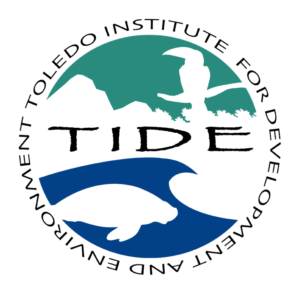TIDE surveys coral reef habitats in Port Honduras Marine Reserve (PHMR) to continually assess the health of the ecosystem by monitoring the effects of nutrient and sediment loading on corals from riverine pollution by monitoring changes in macroalgal cover. Fish biodiversity is also monitored to assess the effectiveness of implementation of fisheries regulations. Surveys are …
Marine Projects
TIDE began a comprehensive habitat-mapping project in Port Honduras Marine Reserve in 2013. Julia Baker, TIDE GIS specialist and James Foley, TIDE science director used remote sensing, underwater ground-truthing surveys and local ecological knowledge (LEK) to determine the spatial distribution of major habitats types such as mangroves, sea grass, coral reef, sand, and mudflats. The …
The Goliath grouper study is being carried out by Science Director, James Foley, and Research Assistant, Marty Alvarez, to determine the current status of Goliath groupers in Port Honduras Marine Reserve (PHMR) Toledo. Catch data from 2014 was compared with studies conducted by Rachel Graham in 2007-2010 to determine impacts of fishing on Goliath grouper …
ECOSUR Master’s student, Tránsito González Medina, supervised by TIDE science director James Foley, is carrying out a six-month manatee baseline population study at TIDE to improve understanding of the distribution and movement of manatees in Southern Belize. The research focuses on the behaviour, age classes, abundance and distribution of manatees in PHMR. One original reason …
The Caribbean Spiny Lobster, Panulirus argus, is an essential fishery product for Port Honduras Marine Reserve (PHMR). It has become crucial to study these crustaceans to develop management practices that will lead to sustainable population density and avoid collapse of the fisheries in the surrounding communities. In order to improve current management practices and aid …
Background: TIDE’s lionfish research aims to monitor the lionfish invasion in PHMR, determining population dynamics and behaviour in the reserve whilst also instigating effective control methods that can be carried out by the local community. Lionfish (Pterois volitans) are an invasive species that have severely affected native fish populations in the Caribbean. Lionfish are native …
Dolphin research in Port Honduras Marine Reserve (PHMR) has been carried out to establish baseline information on the populations present in the reserve. TIDE gathered information on dolphins in response to Providence Energy’s proposal to conduct seismic and oil exploration in Port Honduras Marine Reserve (PHMR). Seismic testing is known to have caused negative impacts …
TIDE’s first Ridge to Reef expedition group had the incredible experience of tagging a critically endangered hawksbill sea turtle on 23rd August 2014! She was named TIDE of HOPE in honour of the Hawksbill Hope project with Marymount University who supplied the tag. She has provided important migration data for sea turtles that nest in the Port …
Queen conch, Lobatus gigas, is a species of high commercial importance in Port Honduras Marine Reserve (PHMR). It was once abundant throughout the Caribbean, but as a popular seafood dish it has become overfished in much of its range. Despite management of the fishery within PHMR (a joint effort between the Belize Fisheries Department and …
Although it is too early to tell the impacts on stocks of commercial species (e.g. conch, lobster, sea cucumber and fish), Managed Access fishers have seen much improved catches of lobster and conch and participation in forums has trebled. Lessons learned during the two-year pilot in the Port Honduras Marine Reserve and at Glover’s Reef …

